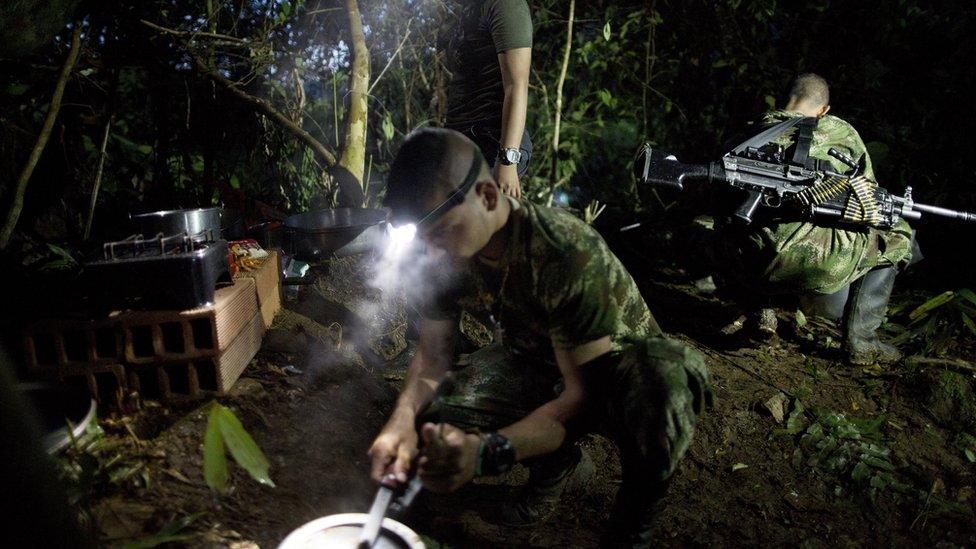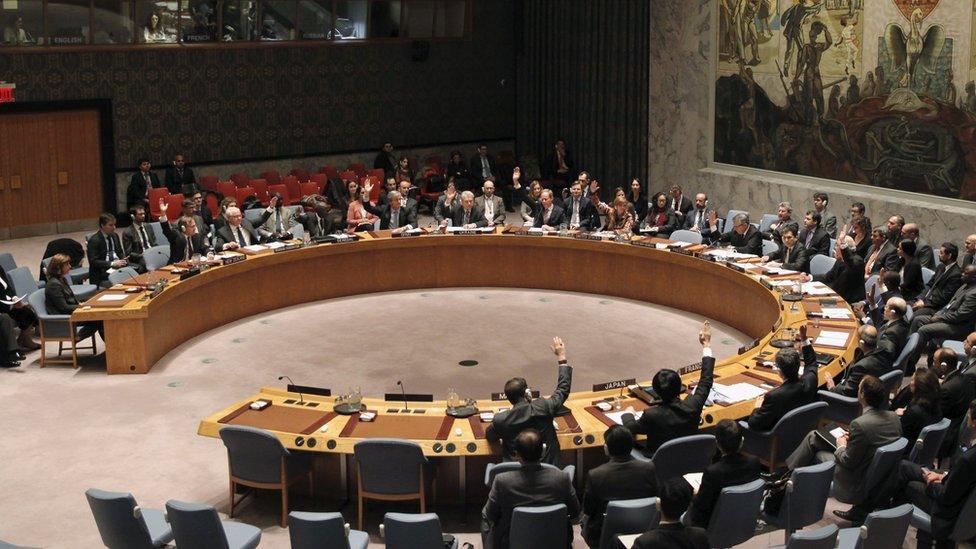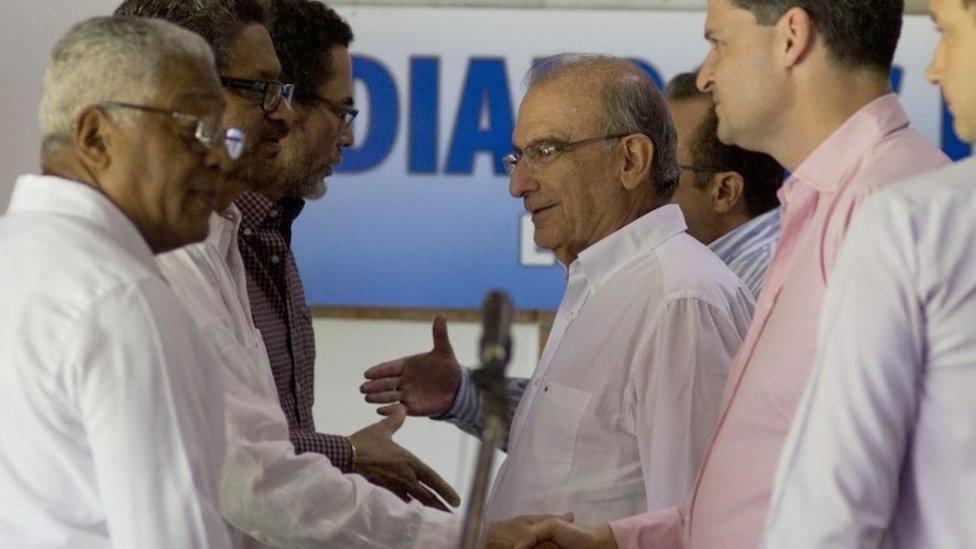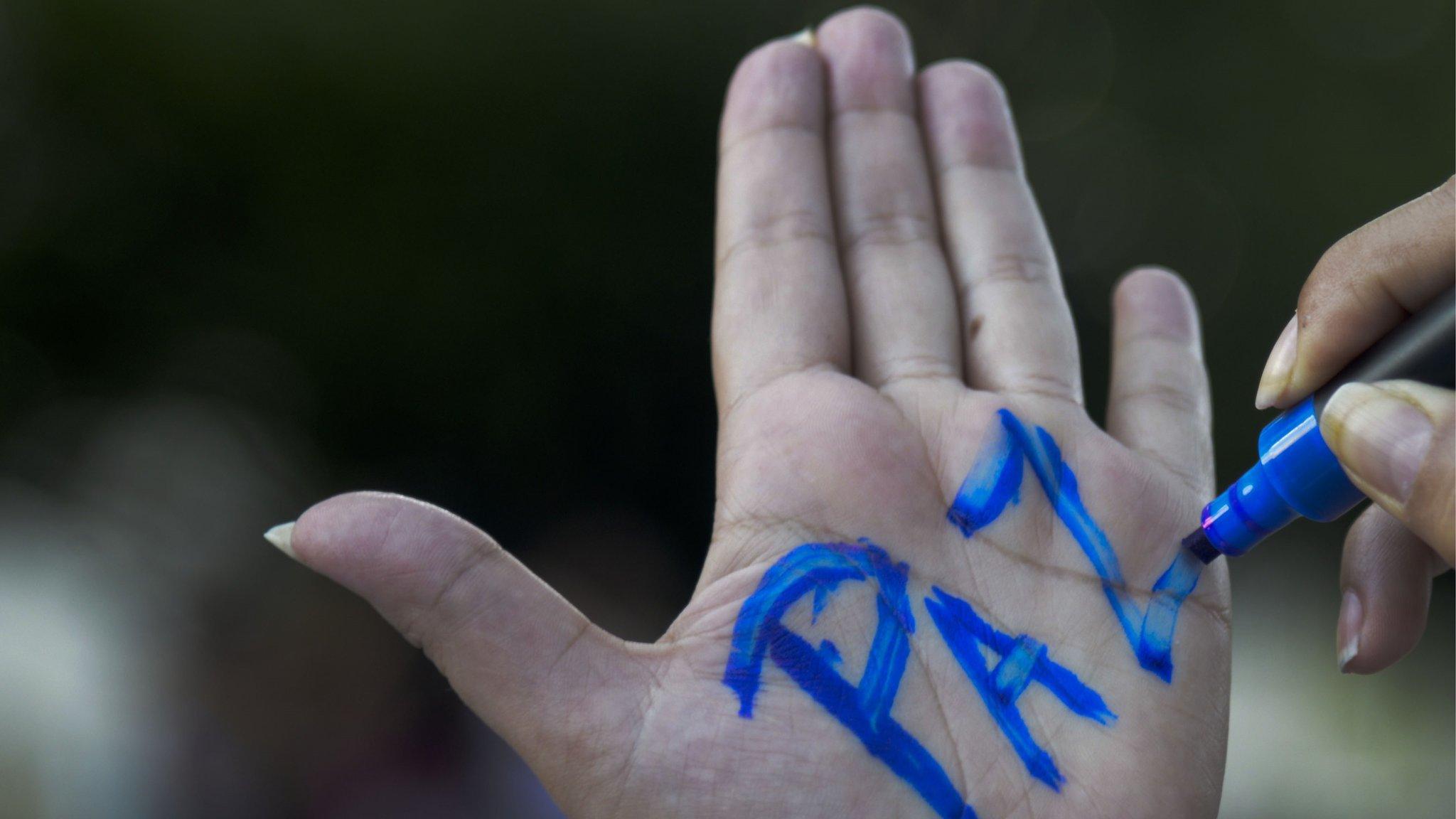UN backs mission to monitor Colombia peace deal
- Published

Farc rebels remain camped out in remote forested areas of Colombia
The UN Security Council has approved the creation of an unarmed mission in Colombia to oversee a bilateral ceasefire, if Farc rebels and the government sign a peace agreement.
The mission would have a mandate for a year which could be extended if both sides request it.
Negotiators for the two sides issued a joint request for the UN's involvement last week during peace talks in Cuba.
They have set a deadline of 23 March for the signing of a peace accord.
The UN "political mission" will consist of unarmed observers from Latin American and Caribbean nations.
Colombia has seen decades of fighting between the government and the left-wing Farc movement, with more than 220,000 people killed and millions displaced in unrest which has also involved other guerrilla groups and right-wing paramilitaries. It is the longest-running armed conflict in the Western Hemisphere.
"It isn't common for a country to refer itself to the council, but it's exactly the kind of role the United Nations should be playing," said British UN Ambassador Matthew Rycroft.
"I hope today will mark the start of the final stage of peace talks."
US Ambassador Samantha Power warned that issues between the two sides still needed to be resolved, such as the removal of land mines and the re-integration of guerrillas into the population.

The mission was unanimously approved by the UN Security Council
The UN resolution asks Secretary-General Ban Ki-moon to make detailed recommendations on the mission's size and operation to be approved by the security council within 30 days of a ceasefire.
Last week, the Colombian government's lead negotiator, Humberto de la Calle, described the request to the UN as a "transcendental" moment.
He said it was an "unequivocal demonstration of our desire to end confrontation".
Since official peace talks started in Havana in November 2012, negotiators have reached agreement on key issues such as the political participation of the rebels, land rights, drug trafficking and transitional justice.
Last September, President Juan Manuel Santos and Farc chief Timoleon Jimenez, known as Timochenko, said they wanted an agreement within six months.
- Published27 May 2013
- Published14 December 2015

- Published31 October 2014
